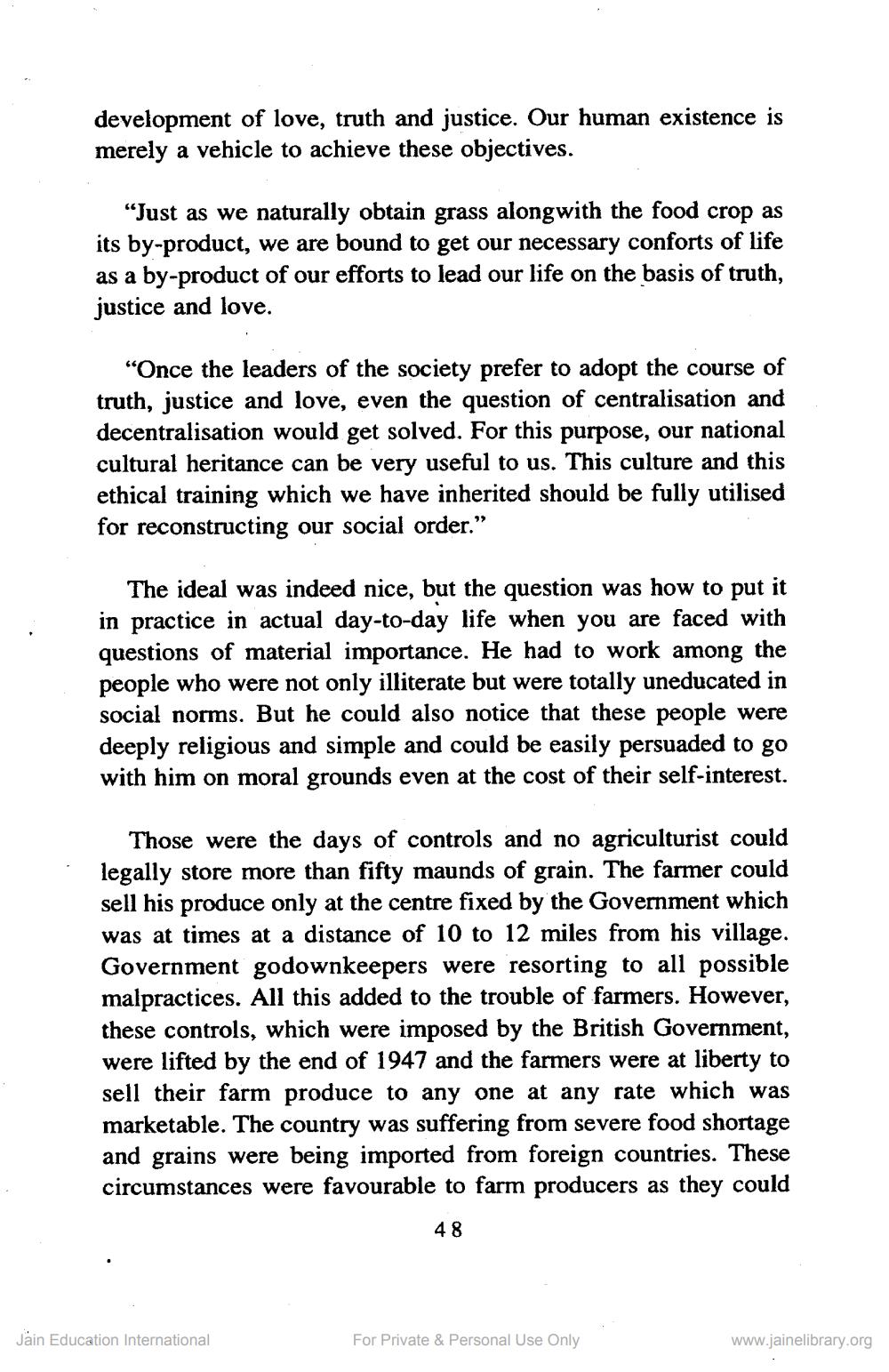________________
development of love, truth and justice. Our human existence is merely a vehicle to achieve these objectives.
“Just as we naturally obtain grass alongwith the food crop as its by-product, we are bound to get our necessary conforts of life as a by-product of our efforts to lead our life on the basis of truth, justice and love.
"Once the leaders of the society prefer to adopt the course of truth, justice and love, even the question of centralisation and decentralisation would get solved. For this purpose, our national cultural heritance can be very useful to us. This culture and this ethical training which we have inherited should be fully utilised for reconstructing our social order."
The ideal was indeed nice, but the question was how to put it in practice in actual day-to-day life when you are faced with questions of material importance. He had to work among the people who were not only illiterate but were totally uneducated in social norms. But he could also notice that these people were deeply religious and simple and could be easily persuaded to go with him on moral grounds even at the cost of their self-interest.
Those were the days of controls and no agriculturist could legally store more than fifty maunds of grain. The farmer could sell his produce only at the centre fixed by the Government which was at times at a distance of 10 to 12 miles from his village. Government godownkeepers were resorting to all possible malpractices. All this added to the trouble of farmers. However, these controls, which were imposed by the British Government, were lifted by the end of 1947 and the farmers were at liberty to sell their farm produce to any one at any rate which was marketable. The country was suffering from severe food shortage and grains were being imported from foreign countries. These circumstances were favourable to farm producers as they could
48
Jain Education International
For Private & Personal Use Only
www.jainelibrary.org




